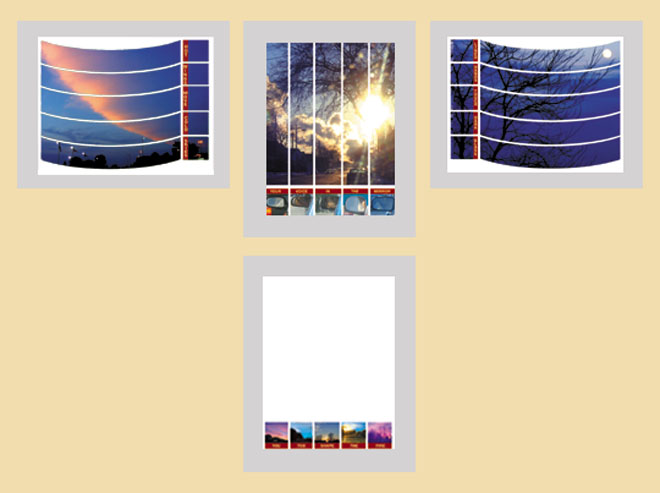. .
|
NOTES:
Sources: My hands. The murals from the Tepantitla complex at
Teotihuacan (Central Mexico, first centuries C.E.) showing open hands
distributing bounty. The structure of feathers and their relation to
highly stylized bird images in diverse Indigenous Arts of North America.
Bill Keith's exclamation points/zebra stripes. Márton Koppány's
punctuation mark poems, one set each of question marks and exclamation
points, in which only the last of each includes the most basic element
of punctuation, the dot, on the last one of each series. The space
(large or small) between one sheet of paper and another.
Question marks make open hands and flight possible. Exclamation
points create the body and create a base for the extensions of wings and
fingers. The dots on the bottom panel are essential to the other two
punctuation marks which, like the period, conclude a sentence. In
Spanish usage, inverted ¿ opens a question, just as ? closes it. The curve
in question marks need not be great. The dots may be periods or they may
be ellipses. All marks need negative space to function. The moon's disk
reflects the sun's light, as faces appear in mirrors. Watch the moon and
punctuation - the full moon can turn into various different styles of
commas, quotation marks, and parentheses that function as internal
divisions rather than temporary points of closure indicated by the
exclamation point, the question mark, and the period. You shouldn't
look directly at the sun's disk, though I take pictures of it through
clouds and in conjunction with them. The sun makes colors appear
dramatically in the sky, and tends to do so most enthusiastically at the
end of a day. Sunlight deflected through clouds can appear as lines and
can make spots on your windshield show up as tentative dots. Despite the
perennial dirtying of the Bible by Fundamentalist Jihadists, and
particularly in the U.S. in 2004, check out I Corinthians 13:12. Feathers
make good pens if you know how to cut and temper them. They can also
be used delightfully in erotic play.
Click here to go to full images of component pages
Copyright © 2005 by Karl Young
..
| |

